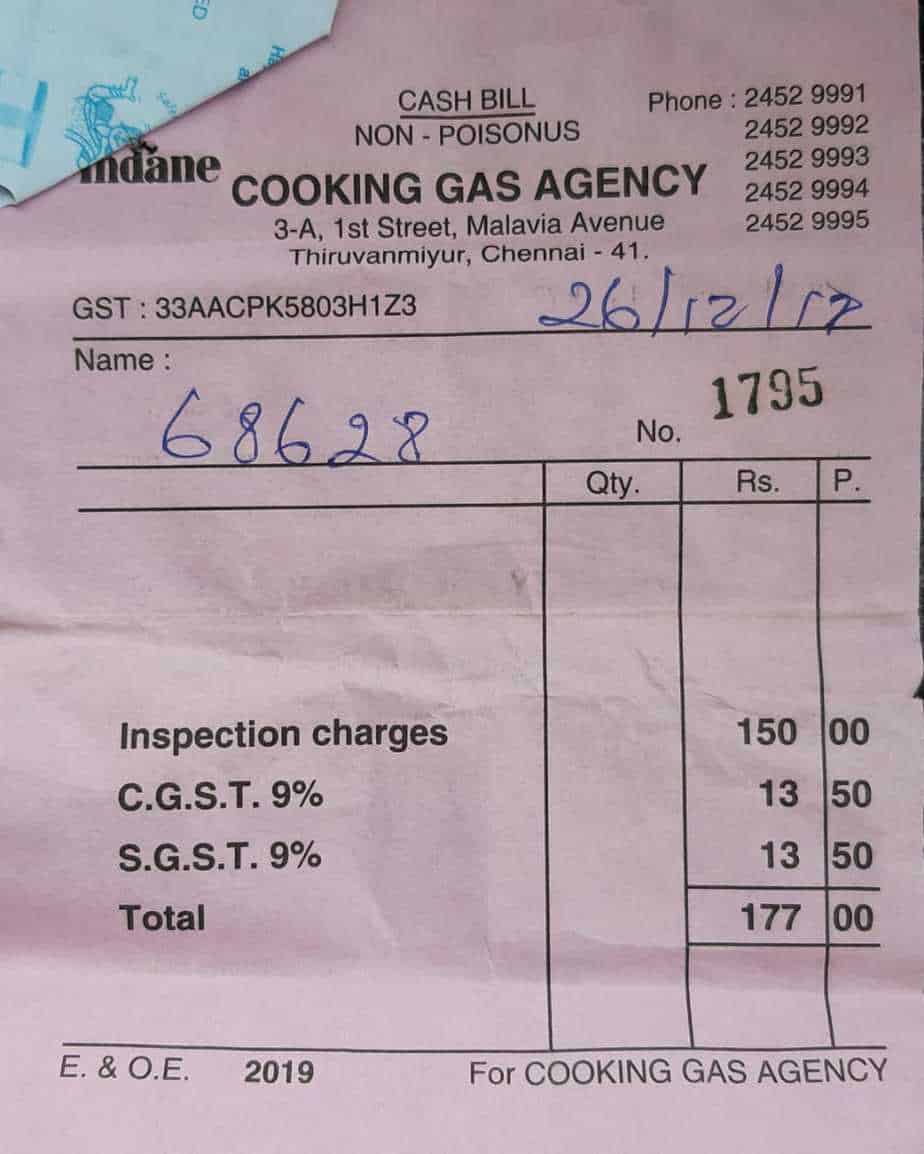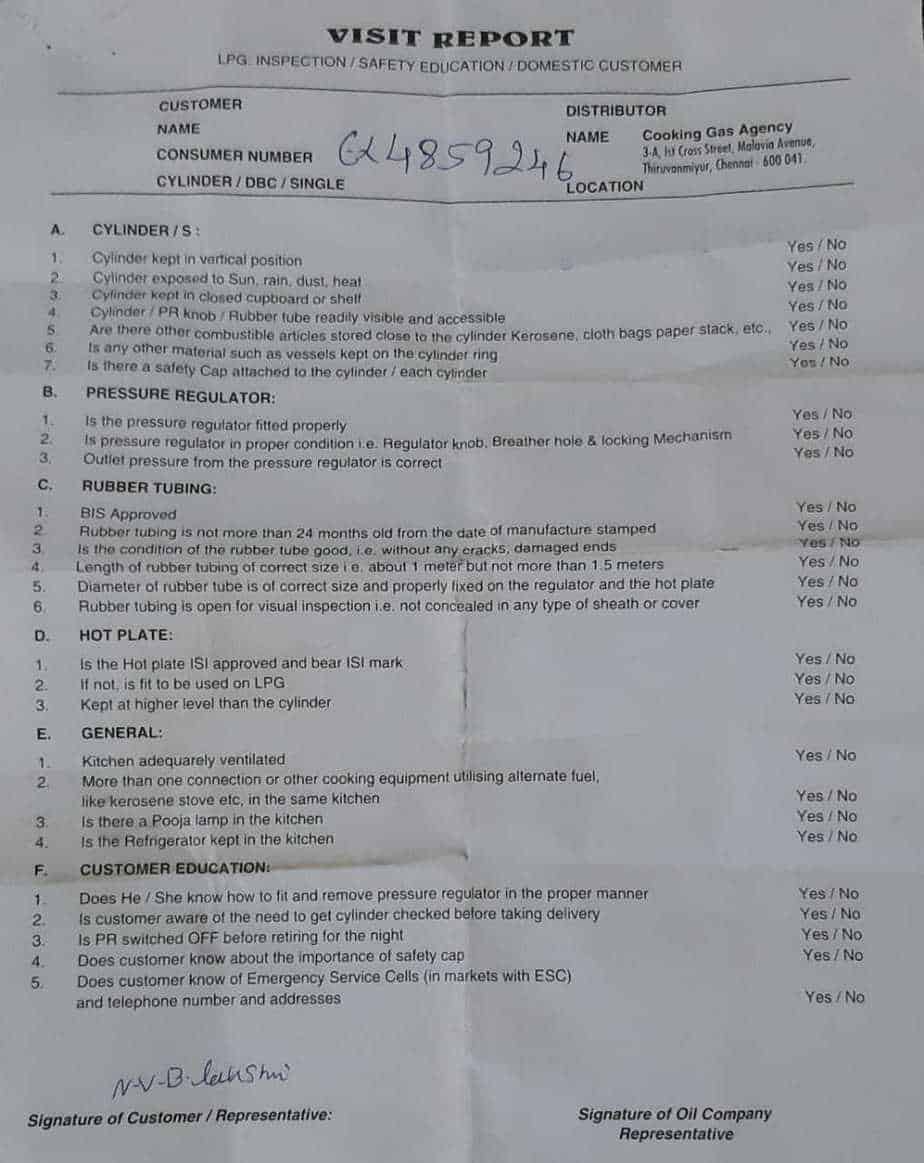Residents across the city have at one time or another faced sudden inspections of the LPG connection at home. These often catch them by surprise as most people are unaware of the requirement of these checks and the frequency at which these should be conducted. Inspections are recommended once every five years, to be conducted by authorised personnel from the respective gas agencies which supply the cylinders. Lack of awareness about this has led to residents being duped by unauthorised individuals who carry out inspections at will and fleece them.
However, before we decide to do away with inspections altogether, here are some facts that all LPG users must be sensitised to:
1. LPG is an obedient servant but a dangerous master.
2. Irregularities or problems in LPG installation can lead to hazardous situations such as fire, suffocation, explosions. Therefore periodic inspection of installation is a must by trained people to detect and rectify irregularities.
5. Stoves, tubes, regulator connections wear out with use and ageing and need to be checked and attended to periodically.
4. Lay citizens would not know enough about the technical requirements. Avoiding inspections is therefore *NOT* a safe practice.
5. Even though the period for an inspection is now set at 5 years, if you suspect any abnormality — smell, gas leak noise, suspected leakage etc — you must call your provider and get these attended to at the earliest.
While periodic inspections are crucial to prevent instances of mishaps or hazardous situations, citizens report rampant inefficiency and instances of deceit. Recent shared experiences show that many have fallen prey to it.
Some customers have been duped into believing that annual inspections are mandatory, instead of once in five years. Inspections are often carried out by technically non-competent people, defeating the purpose of the entire exercise. There have also been case where fraudulent persons came for inspection, with fake or inappropriate ID cards.

Two checks had been carried out in two years instead of the prescribed period of five years though a receipt was issued by the agency. Pic: Namasivayam.
Several residents of Adyar and nearby neighbourhoods received such visits. Some even turned the personnel away, as they were not aware of the process and uncertain whether the visiting technician was indeed an authentic representative of the gas agency. There has also been an instance where a customer was asked to pay Rs 200 and sign a blank inspection form without any inspection being conducted.

Some residents were asked to sign off on inspection forms without the inspection being conducted. Pic: Namasivayam C
Since I personally received two such visits over the last two years, I’d raised this with the Indian Oil Corporation who sent a fact finding team to my house along with the gas agency manager. Action is awaited on their part. Meanwhile, we must always check for a genuine ID card and credentials before allowing any stranger to enter the house for a check. If in doubt, please call the LPG dealer and verify before permitting entry of the person into your house.
My complaint is only against the undue frequency of inspections, lack of competence of visiting inspectors, and the absence of proper identification papers in many cases, NOT against the need for an inspection itself.
What do the guidelines say?The Petroleum and Natural Gas Regulatory Board has issued several guidelines with the objective of protecting consumers from fraud.
|